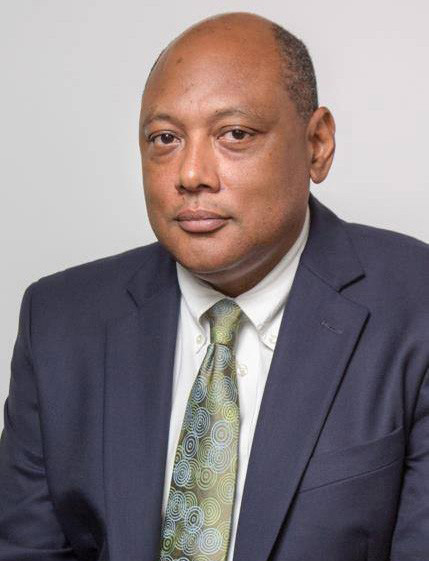After weeks of evasion, the government yesterday admitted that it received a signing bonus from ExxonMobil and its partners more than a year ago and never disclosed this to the public.
The admission came in the National Assembly from Natural Resources Minister Raphael Trotman following the publication in yesterday’s Stabroek News and Guyana Times of a letter of September 20, 2016 from the Ministry of Finance to the Bank of Guyana (BoG) seeking the setting up of an account for the funds.
Declining to disclose the quantum received, Trotman, during his budget debate presentation, said that the bonus was intended to be used for legal fees pertaining to the preservation of Guyana’s territorial integrity and he charged that this was a technique that the opposition PPP/C had also utilised.
The government’s secrecy about the signing bonus for more than a year will likely have repercussions for its standing on openness in the oil sector and yesterday local transparency group Transparency Institute Guyana Inc said anti-corruption advocates were shocked at the deception by the government over the bonus.

Since oil was discovered here in May 2015, the government had emphasised transparency in relation to all related matters, including revenues and its withholding of information will be seen as undermining the efforts at establishing a robust relationship with the Extractive Industries Transparency Initiative, which aims at full disclosure of all financial flows from natural resources deals. ExxonMobil will also come under scrutiny for participating in a secret transaction with the government.
After months of being pressed to release the new agreement that had been signed with ExxonMobil in 2016 and which might have referred to the signing bonus, the government had said that it was going to make the document available this month. This commitment was overtaken yesterday by the publishing of the letter in the newspapers and Trotman addressed the matter in his presentation.
Trotman told the National Assembly that using the money for territorial preservation initiatives was nothing new and it was only continuing a process started under the People’s Progressive Party Civic (PPP/C) government.
“Yes, Mr Speaker, the government received a large sum because we had been advised that the previous administration [had done the same], when faced with a terrible situation in July of 2000 when a company had attempted to explore with its rig and had been chased from the waters of Guyana,” Trotman said, as he challenged PPP/C parliamentarians to dispute his position.
None of the PPP/C members of parliament replied to the claims but as Trotman continued on the oil contract, heckles rained that “only because of pressure make you talking now.”
Observers note that the PPP/C example is quite different from the present situation. Guyana had challenged Suriname at the International law of the Sea Tribunal in Hamburg and won its case over the 2000 incursion into Guyana’s waters. It was later revealed that Canadian oil company CGX had help financed the fees in expectation that a win for Guyana would permit it to resume drilling in the area where it was evicted from in 2000. It also did not entail the signing of a new agreement, which the APNU+AFC government entered into with ExxonMobil’s affiliate, Esso Exploration and Production Guyana Limited (EEGPL).
‘Nothing to hide’
Trotman, who made reference to the news item about the bonus letter in Stabroek News and the Guyana Times, said it seemed to him “deliberately organised to cause embarrassment to the government” but noted that he wanted to put on record that neither he nor his government has anything to hide.
He said that the signing bonus information would have formed part of his presentation yesterday anyway, given that government had already promised to release the contract and its antecedents in its entirety by the end of this month and that two international law firms have been already hired – the Norwegian firm Michelet & Co and US law firm, Jones Day. Michelet & Co specialises in the oil & gas, oilfield and maritime services industries.
“Mr Speaker, some of the advisors of the then [PPP/C] government remained, Mr Speaker, advisors of this government and they advised us and we believed, Mr Speaker, that a certain company handed over a certain sum, which I challenge anyone to deny, to aid the government’s work in defending its right in any court of law and to advance its case,” he said.
“And so, Mr Speaker, this government took the advice given to the previous government and we adopted it. And yes, Mr Speaker, we did what we did, to preserve the safety and wellbeing of the people of Guyana and to safeguard the sovereignty and territorial integrity of this country and Mr. Speaker, if it is we are to be blamed, let us be blamed, Mr. Speaker, for doing what is right and as had been done by the previous administration, we seek only to defend our country. Mr. Speaker, we don’t have warplanes and fighter jets and other destroyers. What we have always had since independence is our legal prowess and our diplomatic abilities and those are our best tools. We wish to see this region as a region of peace and our best tools, Mr Speaker, are our diplomatic efforts and our legal prowess. And so, Mr Speaker, yes, there is a sum and yes, Mr Speaker, it is reserved to safeguard this country,” he added.
Sources in the government explained to Stabroek News that the decision was made since last year to reserve the money for legal fees, in preparation for if then United Nations Secretary General (SG) Ban Ki-moon had made a decision to send the Guyana/Venezuela border controversy to the International Court of Justice.
Government, the source said, would have announced the decision then but had to keep silent as Guyana was asked by the UN Secretary General to have discussions for another year with Venezuela, facilitated by the UN SG’s representative Dag Nylander. That process should be completed by December 31st of this year, with government optimistic that the SG will rule that the matter be taken to the ICJ.
“You cannot put your diplomatic and security strategies public willy-nilly for all and sundry to see. It is why we had asked the people to trust their government that they are doing what is right. But you know Guyanese have a problem with trust, maybe rightfully so, given that they had decades of lies, and they were all ‘We want to see the contract, oh they taking the money for themselves…. However, all this time we were planning and having discussions with experienced officials,” the source said.
When asked why not then just admit the money was collected and was going towards a worthy cause that would be revealed in due course, the source laughed. “You and I both know that it would not stop there. Nothing ever ends just like that and there will be questions and questions and more questions,” the source said.
‘No slush fund’
Trotman, in his address, assured that the monies were safe and would be spent on Guyana’s legal battles with Venezuela.
“I am not ashamed because there is no slush fund and there is no people jetting off and spending money. All we are doing is what should be done to preserve the good state.
Still on the budding oil sector, Trotman explained that while Exxon was not obligated to renegotiate the 1999 contract signed under the then government, some additions were made and where there was no royalty this country would now receive two percent of the gross, which at today’s oil prices would amount to about US$380 million annually.
“Upon ascension to office [government realised] there is no legal obligation by Exxon to renegotiate a contract. This government recognises the sanctity of contracts. We don’t want to be labeled a pariah state where we are called into redo everything that has been done before. We also recognised the contract of 1999 was not a bad contract. I have said so many times publicly that it represented at the time a good contract. Nonetheless, we were able to receive a two percent royalty when there was no royalty before. In fact, the royalty was zero—the law says there should be an at least one percent. We have secured two percent on the gross,” he noted.
In addition, he said that the annual licence fee has been increased from US$250,000 to US$1 million.
He said some of US$300,000 assigned for corporate social responsibility has been used to finance Guyana’s relief operations this year to several hurricane-hit Caribbean islands. He also mentioned similar figure for capacity and scholarships.
“Oil has the possibility, even obligation, to bring about change… we need an oil change in this country. Our century old engines are failing and our drivers, in every sense, have to be changed.
“We have a new product and we must create the new country where we retain, retrain and retool our old and young to take advantage of this. I am acutely aware of the anxiety and weight that the closure of sugar factories will bring to all Guyana,” he added.
And with many objections raised about the current Petroleum Commission Bill, which is currently before a special select committee, Trotman said that it will be reworked, catering much more for transparency and accountability.
“In 2017, both the Petroleum Commission Bill and the Local Content Policy were widely disseminated for public scrutiny and currently the Bill is before the Select Committee while the Policy is being finalised with stakeholder feedback. In 2018, the other aforementioned legislative and policy instruments will be disseminated for stakeholder consultations and tabled in the National Assembly. Mr. Speaker, the government has chosen to pause the implementation of the Petroleum Commission Bill so that we can receive all fit and proper proposals that may be out there. This moment will not come again and how we prepare to manage this resource, in particular, will determine the long-term future of the country so I will recommend to Cabinet that the format is changed from the standard semi-autonomous one to make the Commission more independent and inclusive so that it can enjoy national support,” he said.
Trotman said that none of the good done by his ministry seems to be highlighted in the public and for this he told the House of the many strides made by the Ministry of Natural Resources, especially in the oil and gas sector.
“This government has recognised the need to improve the policy and regulatory framework by including issues such as licensing and contracting, fiscal framework, transparency and accountability, local content and environmental management. I would like to use this opportunity to inform the National Assembly that we have the following legislation and policy documents in draft format. These include: Revisions to the 1986 Petroleum Exploration & Production Act & Regulations; Oil and Gas Policy; Local Content Policy; Petroleum Commission Bill; Environmental Regulations; Health and Safety Regulations; Petroleum Taxation and Fiscal Legislation; and Sovereign Wealth Fund Bill,” he said.
The receipt of a signing bonus by the government was first raised by commentator Christopher Ram in October of this year in his Stabroek News oil and gas column.





